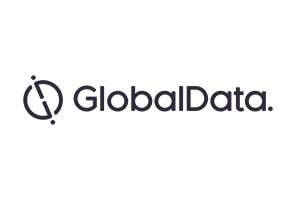AnaptysBio’s ANB020 has recently finished a small-scale Phase IIa trial, with positive results having been presented at the 76th American Academy of Dermatology (AAD) Annual Meeting. It is a first-in-class monoclonal antibody for atopic dermatitis that targets interleukin-33 (IL-33). If successfully brought to market, ANB020 would find itself competing with the current premier biologic treatment for atopic dermatitis, Regeneron’s Dupixent (dupilumab).
Dupixent functions by inhibiting the IL-4 receptor alpha subunit, thereby inhibiting IL-4 and IL-13 signalling. ANB020 targets IL-33, a pro-inflammatory cytokine that precedes IL-4 and IL-13 in the inflammation signalling pathway, and is responsible for recruiting pro-inflammatory cells, including dendritic cells, TH2 cells, and type 2 innate lymphoid cells. Considering Dupixent’s success since its approval, ANB020 could potentially perform just as well or better in terms of reducing the underlying inflammation responsible for atopic dermatitis and suppressing the signaling before symptoms have a chance to manifest.
This mechanism of inflammation suppression contrasts with another pipeline biologic, Galderma’s nemolizumab. Nemolizumab is an anti-IL-31 receptor monoclonal antibody. IL-31 is part of the inflammatory signalling cascade much further along than IL-33, Il-4, and IL-13, and is responsible for the pruritic symptom of atopic dermatitis.
While nemolizumab does not affect the levels of underlying inflammation, the purpose of the drug is likely to eliminate patient compulsion to scratch at symptomatic skin, which would otherwise cause even greater inflammation at scratch sites. Key opinion leaders (KOLs) interviewed by GlobalData were unsure as to whether they would be able to incorporate nemolizumab into an atopic dermatitis treatment regimen, unless it was in combination with other drugs that specifically targeted the inflammation. Whether the idea of an atopic dermatitis treatment that does not address inflammation will be accommodated by insurers remains to be seen.
In the proof-of-concept Phase IIa trial, 12 volunteers suffering from moderate-to-severe atopic dermatitis were dosed with a placebo 14 days after enrollment in the study, then had ANB020 administered via a single 300mg injection 21 days after enrollment. The study failed to achieve its objective of having an EASI-50 response in at least 50% of volunteers 29 days after ANB020 administration, with only 10 out of the 12 volunteers meeting the endpoint. However, all participants reached EASI-50 by Day 57 after administration.
Overall, ANB020 looks promising and could well build on the success of the dominant biologic treatment for atopic dermatitis, Dupixent. However, it should be noted that it took at least 57 days for all 12 participants to achieve EASI-50, and that this preliminary Phase IIa study did not incorporate a placebo control group. Despite these reservations, ANB020 seemed to be well-tolerated, with no serious adverse effects and the most common side effects being headache and dizziness. If the planned Phase IIb trial for H1 2018 continues and improves on the generally favorable Phase IIa results, GlobalData believes that ANB020 will likely be competing for a major share of the atopic dermatitis market.

US Tariffs are shifting - will you react or anticipate?
Don’t let policy changes catch you off guard. Stay proactive with real-time data and expert analysis.
By GlobalDataRelated Reports
GlobalData (2018). Atopic Dermatitis – Market Analysis and Forecasts to 2027, to be published





